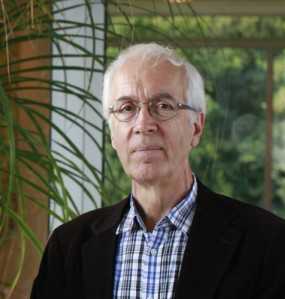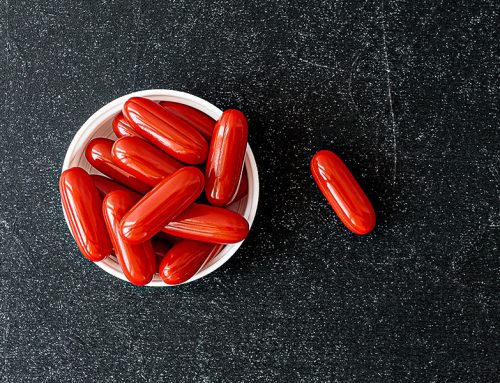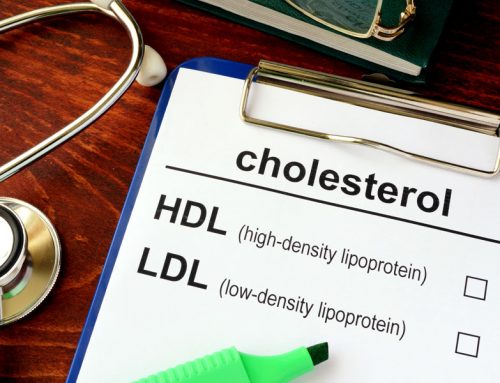
Bio-medical researchers attended the 8th conference of the International Coenzyme Q10 Association in Bologna, Italy, from October 8 to October 11, 2015. The conference was held under the auspices of the University of Bologna, the oldest university in Europe.
There is still not enough scientific evidence to choose ubiquinol over ubiquinone. That is the take-away lesson from the International Coenzyme Q10 Association conference held in Bologna last week. Among the presenters at the conference, the split was between the advocates of the ubiquinone form of Coenzyme Q10 and the advocates of the ubiquinol form. The assembled bio-medical researchers and doctors and professors made their presentations and showed their posters, but, when it came down to it, there were no studies showing that the ubiquinol form should be the preferred form for a Coenzyme Q10 supplement.
The results of the Q-SYMBIO study
Professor Franklin Rosenfeldt, Monash University, Australia, a cardiac surgeon and one of the lead researchers on the Q-SYMBIO study presented information about the methods and results and future implications of the study. In the Q-SYMBIO study, researchers gave class III and IV heart failure patients 300 mg of pharmaceutical-grade ubiquinone Q10 dissolved in vegetable oil daily for two years. The patients took their Q10 supplements in 100 mg doses three times a day with their meals.
The use of the ubiquinone Q10 supplements as an adjunctive therapy – that is to say, in addition to the conventional heart failure medications – significantly improved the symptoms and the survival of the heart failure patients as compared to placebo. The Q-SYMBIO study showed convincingly that adjunctive therapy with ubiquinone Q10 supplements is effective, is safe and well-tolerated, and is affordable.
The results of various ubiquinol studies
Objectively, the results of ubiquinol studies that were presented at the conference were orders of magnitude less impressive than the results of the large multi-center Q-SYMBIO study and the results of the large Swedish KiSel-10 study.
Ubiquinol studies not gold standard studies
More than one participant at the conference said that he or she had not been persuaded by the presenters of ubiquinol studies to switch from a ubiquinone Q10 supplement to a ubiquinol supplement. I quote the words of one conference participant:
“What we were presented was experiments done on mice, a study without a genuine use of the placebo group, a study without a significant effect, and a study of a type in which ubiquinone previously has shown the same effect as the ubiquinol did.”
Gold standard ubiquinone studies: Q-SYMBIO and KiSel-10
We now have some big gold standard studies done with the ubiquinone Q10. Both the Q-SYMBIO study and the KiSel-10 study were randomized, double-blind, placebo-controlled studies. The researchers in those studies made every effort to ensure that the only difference between the two experimental groups was the difference in the intervention. The participants in the studies got the active ubiquinone Q10 treatment, or they got the placebo treatment. No one, neither doctor nor patient, knew until the end of the study who had gotten the real thing and who had not.
Statin medications and heart failure and the need for Q10
Jens Langsjoen spoke on the topic of statin cardiomyopathy, which he labeled a hidden pandemic. The background is that yes, by using statin medications, we have reduced total cholesterol levels and bad cholesterol levels, and we have reduced the number of heart attacks.
But, at the same time, under the radar, we have produced greater and greater numbers of heart failure patients at least in part because the statin medications inhibit not only the bio-synthesis of cholesterol but also the bio-synthesis of Coenzyme Q10. The result is the increasingly energy-starved heart that Dr. Svend Aage Mortensen thought was the fundamental underlying cause of heart failure.
There is some evidence to suggest that supplementation of statin patients with a well-absorbed Q10 preparation can ameliorate the adverse effects of the statin medications.

Dr. Svend Aage Mortensen, August 31,1942 – April 22, 2015, professor and cardiologist, Copenhagen University Hospital
In memory of Professor Svend Aage Mortensen
Professor Gian Paolo Littarru delivered the plenary lecture at the conference Thursday evening, October 8th. His subject was the memory of Professor Svend Aage Mortensen, Copenhagen University Hospital, who was the head researcher and the lead author of the Q-SYMBIO study.
Dr. Mortensen, who would have been 73 years old on August 31, 2015, died of infection and complications on April 22, 2015, following heart valve replacement surgery.
Later, at dinner on Saturday evening, Dr. Mortensen’s fellow Dane and fellow researcher, Sven Moesgaard, held a moving memorial speech for Dr. Mortensen.
Dr. William Judy’s remarks at the conference
Sunday forenoon, October 11th, the last agenda item on the conference program was the “Multi-disciplinary Discussion: Ubiquinone vs. Ubiquinol.” Dr. William Judy, founder and chairman of the SIBR Research Institute and long-time Coenzyme Q10 researcher, was at the podium to shed light on the relative merits of the two forms of Q10.
No significant differences for ubiquinone-ubiquinol
Dr. Judy showed slides of the research data that he has done comparing the absorption and bio-availability of the ubiquinone and ubiquinol forms of Q10. Dr. Judy’s data showed that there is no statistically significant difference in the absorption of ubiquinone and ubiquinol.

Dr. and Mrs. William Judy together with researcher Dr. Anne Louise Mortensen at the Bologna conference
Single-dose absorption studies
Dr. Judy went on to explain the purpose of doing single-dose absorption studies of Coenzyme Q10 supplements. He wants to see what percentage of a 100 mg Q10 supplement can be absorbed, and he knows that it is not possible to get such an absorption percentage from a steady-state bioavailability study.
Several research laboratories in the US, including SIBR Research Institute, do single-dose absorption studies. The single-dose absorption study is useful for checking on the accuracy of marketing claims for individual products. Sometimes the marketing claims for absorption can be the object of civil suits and class action suits for false advertising claims.
Discussion dominated by non-science people
Unfortunately, the scientific discussion of the merits of ubiquinone and ubiquinol at the conference was hijacked by a couple of participants without a scientific background. These individuals dominated the discussion but did not provide empirical evidence for their assertions.
Exhortation by Professor Littarru: do research!
Professor Gian Paolo Littarru ended the discussion prematurely by exhorting the Q10 researchers to do the research and provide the clinical data needed to settle the question of whether the best ubiquinol supplement can match or exceed the absorption and effects of the best ubiquinone supplement. At present, there is no ubiquinol preparation that has been approved as a medicine in the way that the ubiquinone preparation used in the Q-SYMBIO study and in the KiSel-10 study has been.
Sources:
- Alehagen, U., Johansson, P., Björnstedt, M., Rosén, A., & Dahlström, U. (2013). Cardiovascular mortality and N-terminal-proBNP reduced after combined selenium and coenzyme Q10 supplementation: a 5-year prospective randomized double-blind placebo-controlled trial among elderly Swedish citizens. International Journal Of Cardiology, 167(5), 1860-1866.
- Mortensen, S. A. (2015). Coenzyme Q10: Will This Natural Substance Become a Guideline-Directed Adjunctive Therapy in Heart Failure? JACC. Heart Failure, 3(3), 270-271. doi:10.1016/j.jchf.2014.12.006
- Mortensen, S. A. (2003). Overview on coenzyme Q10 as adjunctive therapy in chronic heart failure. Rationale, design and end-points of “Q-symbio”–a multinational trial. Biofactors (Oxford, England), 18(1-4), 79-89.
- Mortensen, S. A., Rosenfeldt, F., Kumar, A., Dolliner, P., Filipiak, K. J., Pella, D., & … Littarru, G. P. (2014). The effect of coenzyme Q10 on morbidity and mortality in chronic heart failure: results from Q-SYMBIO: a randomized double-blind trial. JACC. Heart Failure, 2(6), 641-649.









Leave A Comment